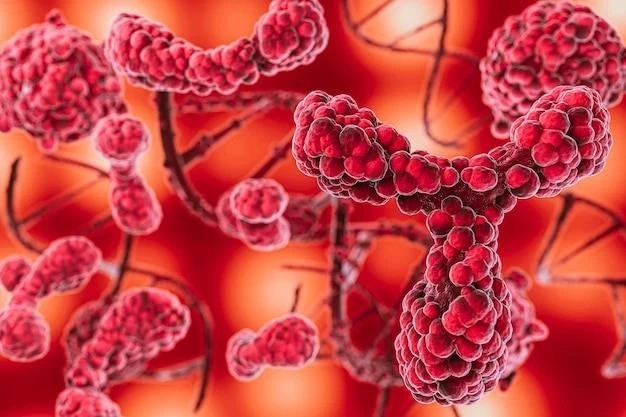Understanding Chronic T-Cell Leukemia
Introduction to Chronic T-Cell Leukemia
Chronic T-Cell Leukemia is a rare type of blood cancer that affects lymphocytes. It can impact the body’s lymphoid tissues and white blood cells‚ leading to an overproduction of abnormal T-lymphocytes. Understanding the causes‚ risk factors‚ diagnosis‚ and treatment options for this condition is crucial in providing comprehensive care to patients. Stay informed about the latest advancements in pediatric oncology and treatment strategies through clinical trials and innovative therapies such as CAR-T cell therapy and targeted therapy.
Causes and Risk Factors
Genetic mutations play a significant role in the development of chronic T-Cell Leukemia‚ leading to abnormal growth and proliferation of leukemia cells. Factors like exposure to radiation‚ certain chemicals‚ or a weakened immune system can increase the risk of this disease; Understanding these underlying causes and risk factors is essential for early detection and personalized treatment approaches. Researchers continue to explore novel therapies and targeted interventions to improve outcomes for patients with this rare form of leukemia.
a. Genetic Mutations and Lymphocytes
Genetic mutations are key drivers in chronic T-Cell Leukemia‚ causing abnormal changes in lymphocytes; These mutations disrupt the normal function of white blood cells‚ leading to uncontrolled growth and infiltration of tissues. Understanding the genetic basis of this disease is crucial for targeted therapies and personalized treatment plans. Through advancements in molecular diagnostics and research‚ medical professionals can better tailor interventions to target specific genetic abnormalities in leukemia cells‚ improving outcomes for patients.
b. Impact on Lymphoid Tissues and White Blood Cells
Chronic T-Cell Leukemia affects lymphoid tissues and disrupts the normal production of white blood cells‚ particularly T-lymphocytes. This disruption can lead to an imbalance in the immune system‚ compromising the body’s ability to fight infections and diseases. Understanding how this disease impacts the lymphoid system is essential for developing targeted treatment strategies that aim to restore normal white blood cell function and overall immune health. Through innovative therapies like immunotherapy and stem cell transplants‚ healthcare providers work to address these specific effects of chronic T-Cell Leukemia.
Diagnosis and Staging
Diagnosing chronic T-Cell Leukemia involves utilizing blood cancer biomarkers and imaging techniques like CT scans or MRIs to identify abnormalities in lymphoid tissues and white blood cells. A bone marrow biopsy is often performed to confirm the presence of abnormal T-lymphocytes. Staging this disease helps determine the extent of its spread‚ guiding treatment decisions. Advances in diagnostic technologies have enhanced the accuracy and efficiency of diagnosing chronic T-Cell Leukemia‚ enabling healthcare professionals to tailor treatment plans for each patient’s unique condition.

a. Blood Cancer Biomarkers
Blood cancer biomarkers play a crucial role in the diagnosis of chronic T-Cell Leukemia‚ identifying specific indicators in the blood that suggest the presence of abnormal T-lymphocytes. These biomarkers help healthcare providers differentiate between different types of leukemia and monitor disease progression. By analyzing biomarker levels and changes over time‚ medical professionals can assess the effectiveness of treatments and adjust therapeutic strategies accordingly. Incorporating biomarker analysis into the diagnostic process enhances the precision and accuracy of diagnosing chronic T-Cell Leukemia.
b. Imaging Techniques and Bone Marrow Biopsy
Imaging techniques such as CT scans and MRIs are valuable tools in diagnosing chronic T-Cell Leukemia‚ allowing healthcare professionals to visualize lymphoid tissues and assess the extent of disease involvement. Additionally‚ a bone marrow biopsy is often performed to obtain a sample for detailed examination under a microscope‚ confirming the presence of abnormal T-lymphocytes. Combining imaging modalities with biopsy results provides a comprehensive understanding of the disease’s impact on bone marrow and aids in staging the leukemia for appropriate treatment planning.
Treatment Options
Treatment options for chronic T-Cell Leukemia include chemotherapy and radiation therapy to target and destroy cancerous cells. In cases where standard treatments are ineffective‚ stem cell transplant and immunotherapy can offer promising outcomes by bolstering the body’s immune response against leukemia. Targeted therapy and innovative approaches like CAR-T cell therapy aim to specifically target abnormal T-lymphocytes‚ minimizing the impact on healthy cells. Tailoring treatment plans to individual patients’ needs is key in managing chronic T-Cell Leukemia effectively.
a. Chemotherapy and Radiation Therapy
Chemotherapy and radiation therapy are common approaches in treating chronic T-Cell Leukemia. Chemotherapy utilizes medications to target and eradicate cancer cells throughout the body‚ while radiation therapy focuses on localized treatment using high-energy beams. These treatments aim to reduce the number of abnormal T-lymphocytes and alleviate symptoms. By combining these modalities‚ healthcare providers can effectively manage the progression of chronic T-Cell Leukemia and improve patients’ quality of life.
b. Stem Cell Transplant and Immunotherapy
Stem cell transplant and immunotherapy are advanced treatment options for chronic T-Cell Leukemia. A stem cell transplant involves replacing damaged bone marrow with healthy stem cells to restore normal blood cell production. Immunotherapy aims to enhance the immune system’s ability to recognize and target leukemia cells. These cutting-edge therapies offer hope for patients with refractory or relapsed leukemia‚ providing alternative strategies to combat the disease. By harnessing the body’s immune response‚ stem cell transplant and immunotherapy represent promising avenues in the treatment of chronic T-Cell Leukemia.
c. Targeted Therapy and CAR-T Cell Therapy
Targeted therapy and CAR-T cell therapy offer precision treatments for chronic T-Cell Leukemia by specifically targeting abnormal T-lymphocytes. Targeted therapy drugs focus on blocking specific molecules that drive cancer growth‚ while CAR-T cell therapy involves reprogramming the patient’s immune cells to recognize and eliminate leukemia cells. These personalized approaches minimize damage to healthy tissues and improve treatment efficacy. By harnessing the power of targeted treatments and immunotherapies‚ medical professionals can offer novel and effective solutions for patients with chronic T-Cell Leukemia.
Supportive Care and Management
Supportive care is essential in managing chronic T-Cell Leukemia‚ focusing on alleviating symptoms‚ improving quality of life‚ and providing emotional support. Engaging in clinical trials and exploring advanced treatment approaches can offer new hope for patients. Additionally‚ psychological support for both patients and families plays a crucial role in coping with the challenges of leukemia treatment. By embracing a holistic approach to care that includes supportive services‚ healthcare teams can better address the physical‚ emotional‚ and psychological needs of individuals facing chronic T-Cell Leukemia.
a. Clinical Trials and Advanced Treatment Approaches
Participating in clinical trials offers patients with chronic T-Cell Leukemia access to cutting-edge treatments and therapies that are still under investigation. These trials explore innovative approaches‚ such as novel medications‚ targeted therapies‚ and immunotherapies‚ aiming to improve outcomes and quality of life. By enrolling in clinical research‚ patients contribute to the advancement of leukemia treatment and may benefit from early access to promising solutions. Embracing advanced treatment approaches through clinical trials is a proactive step towards addressing the challenges of chronic T-Cell Leukemia.
b. Psychological Support for Patients and Families
Psychological support is paramount for individuals with chronic T-Cell Leukemia and their families‚ helping them navigate the emotional challenges of the disease. Coping with the anxiety‚ stress‚ and uncertainty that come with leukemia treatment is crucial for overall well-being. Providing access to counseling‚ support groups‚ and resources can enhance mental health and resilience throughout the treatment journey. By fostering a supportive environment and addressing psychological needs‚ healthcare teams play a vital role in promoting holistic care and emotional well-being for patients and their loved ones.
Prognosis and Future Research Directions
Understanding the prognosis of chronic T-Cell Leukemia is essential in guiding treatment decisions and setting expectations for patients. Ongoing research into genetic mutations‚ immunotherapies‚ and targeted treatments offers promising avenues for improving outcomes. Future directions in leukemia research focus on developing more effective therapies‚ personalized medicine approaches‚ and enhancing supportive care strategies. By advancing our understanding of chronic T-Cell Leukemia and exploring innovative research directions‚ medical professionals aim to enhance survival rates and quality of life for individuals affected by this rare form of leukemia.
